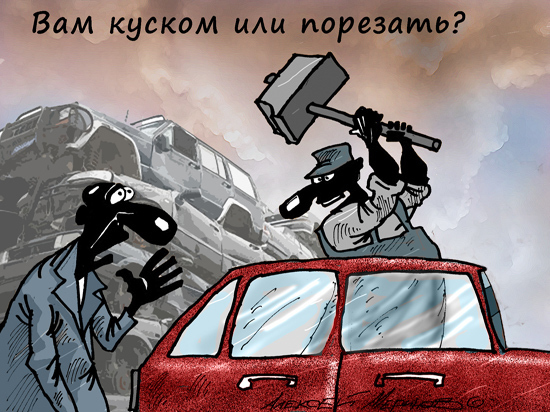At a meeting on the auto industry, they called the wild price of a Russian automatic transmission
[ad_1]

From 100 to 300 components – at risk
The Federation Council announced the timing and amount of investment needed to create modern domestic cars. The national automatic transmission will require investments in the amount of 30 billion rubles, a new manual transmission – 10 billion, all-wheel drive – 20 billion rubles. In a good way, it takes at least 4-5 years to develop them, but the authorities require manufacturers to meet 2-3 years. Who will give the money is still unclear.
Senators reproached the Cabinet for the lack of a coherent strategy to support the automotive industry. “We launch rockets into space, but we cannot produce our own gearbox!” they were indignant.
The meeting on the fate of the Russian automobile industry began, as it should be, for health, and ended with slightly different emotions.
Deputy head of the Ministry of Industry and Trade Albert Karimov said that the industry, which was subjected to the most severe pressure from sanctions, feels much better than many Russians (and even, as it turned out, some senators, as it turned out) think. Despite the fact that the conveyors of most enterprises have been idle for several months, and now, if they are working, they are not at full capacity, the number of employees has not decreased at all, and their salaries have even increased by 9%.
The former head of the Ministry of Transport, and now the general director of AvtoVAZ, Maxim Sokolov, confirmed that in June the plant “began to get up from its knees.” Already in August, 18,000 cars left the assembly line, which is only 7% less than in the same period last year. And in 2023, it is planned to produce 500 thousand cars, which is 15% more than the pre-crisis 2021. In this situation, the plant is not going to dismiss anyone: on the contrary, an additional recruitment of employees begins. In general, miracles and nothing more.
But the devil, as you know, is in the details, and the auto industry is no exception. From the further story it turned out that from the previous line it was possible to restore the production of only three models. Moreover, all of them are produced within the framework of the “special regulations” on one outdated engine and with one gearbox, although earlier manufacturers had four options for both. Of the components in domestic cars, only the radio, air conditioning and airbag have returned so far. At the same time, from 100 to 300 components are still at risk. “The conveyor can be stopped at any moment,” Sokolov warned.
At the beginning of next year, it is planned to resume production of ABS (anti-lock braking system), in May – a 16-valve engine, towards the end of 2024 – EPS (vehicle stability support function). As for the automatic transmission, all-wheel drive and a modern engine, these, according to Sokolov, are “possible, but not quickly solved tasks that require serious funding.”
Where the money will come from to solve them, there was no clarity during the meeting. The plant itself has more than 100 billion debts. Investors are not ready to invest: they would like to deal with the 20 billion invested in Renault frozen due to sanctions. The senators tried to call the ministry official to account, but Mr. Karimov was ready to discuss the bright future of the auto industry in 2035 and refused to say what will happen in 2023. “What is your point of view?” Andrey Kutepov, chairman of the committee on economic policy, asked the deputy minister unsuccessfully.
To top it all off, it turned out that the government plans to reduce preferential lending programs that ensure the demand of the population for the products of the Russian auto industry. If earlier 20 billion rubles were allocated for them, in 2022 10 billion, then only 5 billion appear in the draft budget for 2023.
Meanwhile, automakers are seriously concerned about who will buy their “under-cars.” Moreover, in the quantity required by the authorities, and at greatly increased prices. Sokolov asked the senators to increase sales to amend the law on taxis, obliging companies to purchase products of the domestic auto industry, and also to allow young families to use mother’s capital for this purpose.
As for the members of the Federation Council themselves, according to Kutepov, a study of the declarations showed that “there is currently no one to brag about the presence of a VAZ.”
[ad_2]
Source link






